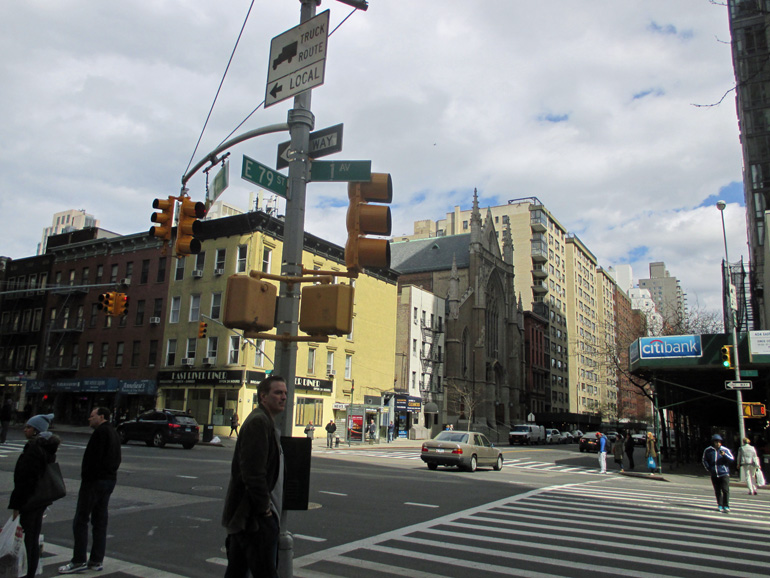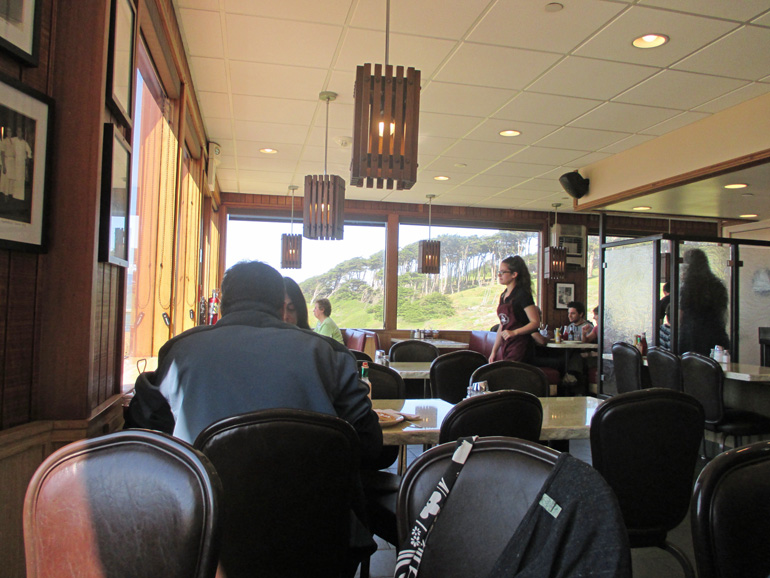People Note:
The Age of Expectations
30 April 2015
Thursday, April 30th, 2015
When Kate Bolick was a teenager,
my mother wrote a short essay about the time a neighbor had spied me walking along the street, and she gave it to me as part of my high school graduation present. “Kate has your bearing,” the gentleman had said, “the same narrow shoulders held erect.” My mother was delighted with the comparison and concluded that, long after she was gone, she would live on through me, there in my very deportment. I told her I loved the piece, but inwardly I cringed. Really? Was I doomed to look like her forever? (25)
This passage is the kernel of a cluster of reservations about Bolick’s mother, and the life that she might have led had she been just a few years younger. In that case, she might not have “pushed aside her ambitions, raised two children, and in her mid-thirties [begun] finding her way towards work she enjoyed, only to discover that she had an awful lot of catching up to do.” (24) Bolick loved her mother, and was devastated to lose her to breast cancer, when she was right out of college. But Nancy O’Keefe Bolick was a cautionary figure for her daughter. She lost her life before realizing its potential because she did what everybody did at the time: she got married. For all that Bolick points to lessons learned from her “awakeners” — the five writers whose stances on marriage and career shaped her image of her own life — it is clear that Nancy Bolick (also a writer) prepared the ground — by riddling it with sinkholes. It is as though Nancy were a vision: She holds a cookie labeled, à la Alice, “Eat me, and you will have a lovely family of your own.” Nancy herself whispers, “Don’t.” Don’t do what I did. Don’t be like me. Unwelcome warnings from a strong, accomplished — but short-lived — mother.
The book that Kate Bolick hasn’t quite written would apply her considerable literary skills to an analysis of the transformation that occurs when people get married — when they get married young, at least, and for the first time. Up to the moment where the groom kisses the bride, the two parties to the marriage constitute distinct individuals, making free choices and thinking for themselves. But the moment they take up housekeeping in a situation that remotely resembles those in which they grew up, the groom becomes his father, and the bride her mother. They do this eagerly, at first, calling it “growing up.” If the man’s father helped with the dishes, that’s a great example; even better if he helped with the babies. But most fathers won’t have set these examples. The bride will probably not give washing the dishes a second thought, nor changing the diapers. She may simmer a bit, only now realizing the extent of her mother’s sacrifice, but she will probably conclude that there is no point to “dwelling” on the matter.
The book that Kate Bolick has written is shot through with anxiety about this transformation. As I suggested the other day, she is acutely attuned to the “innocent” remarks made by her boyfriends.
Often after work R and I went running. Once, we saw a woman jogging along with her toddler in one of those rugged, all-terrain strollers — the embodiment of modern motherhood, multitasking exercise and child care. Mrs Having It All. R smiled and pointed “Look, there’s you someday.” My stomach lurched. There was no way I was going to become that woman, but I didn’t know how to say it. (58)
Kate may not have known how to say it, but she knew how to deal with it: she withdrew sexually. Shortly after R complained about this, she let another man kiss her — sex with anyone but R was okay. She didn’t intend to be unfaithful to him, but, at the same time, she could not afford to be faithful.
For six weeks, I waded through the wreckage, searching for the courage to tell R what we both already knew and couldn’t bear to admit. We were through. (75)
R would be Bolick’s last long-term boyfriend until the present: at the end of the book, she tells us that she is involved with a younger man and feels good, most of the time, about settling down with him. She is somewhat on the old side for a first-time mother, but it’s unlikely, now, that motherhood would undermine her sense of self. She has survived the age of expectations, which, in my experience, boils through the greater part of the two decades after college. By one’s mid- to late-forties, one is actually living, for better or worse, one’s life, and not wondering how to live it. The inconvenient development in modern civilization is that the age of expectation coincides with the years in which parenthood is least taxing, from a physical point of view. At the same time, young parents are also ignorant and inexperienced parents, far more likely to make (terrible) mistakes than older parents. An older parent is also more likely to have found a genuine lifetime companion, and not to have settled for the superficial attractions that are so dazzling in high school. The moral of the story, I suppose, is that you had better take good care of yourself, if you want to see your grandchildren.
***
I mentioned a moment ago that a new husband becomes his father, but it might be more accurate to say that he becomes the man that his mother has permitted him to be. In a truly enlightened society, mothers would raise their sons to be loving husbands and domestic helpmeets. In our world, they appear to do no such thing. When I asked myself why this might be — why a mother would not embrace the opportunity to make the world a better place by seeing to it that her boy was helpful around the house — I was immediately struck by the conflicting romance that beguiles so many mothers of sons. A mother, contemplating her adoring child, has little incentive (and even less desire) to merge with the sisterhood of women. No: for this one little male, she is in a class by herself, and he will keep her there if she does not complicate their relationship by suggesting that he ought to treat the other women in his life as he treats her. Some, dare I say it, go so far as to approve of their sons’ manly thoughtlessness.
Nowhere is the inequality of the sexes greater than in the career opportunities open to parents. It is precisely during his years as a young father that the ordinary man throws himself into building his resume. He knocks himself out on the job. The mother who does the same will find herself visited by people from the Child Protective Services. Marrying late is one way of avoiding the problem. Are there any others? Or are we doomed to repeat the old patterns?
More anon.



















